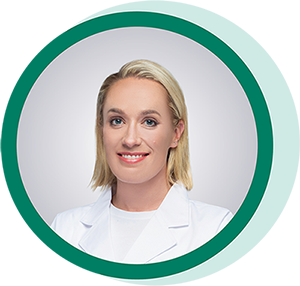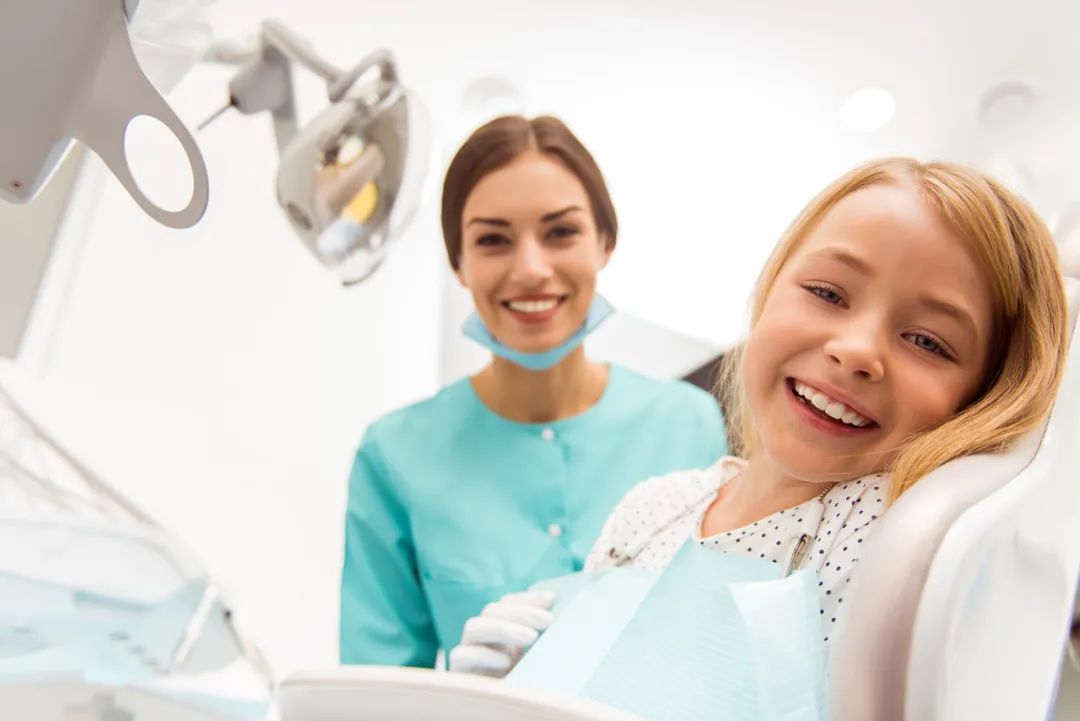
Nouvelles et événements
Early Dental Prevention is Important!
2024-05-20
My name is Dr. Annika Hirn Lopez. I am a general dentist. I have been working since February 2024 at Raffles Hospital in Beijing. Before moving to China, I worked amongst others at a dental clinic for paediatric in Munich, Germany.
Working with people of different ages, I have understood the importance of early prevention for the healthy mouth and teeth. Prevention helps to avoid many unpleasant dental problems both in primary teeth and later in permanent dentition.

Pedodontics is a specialty of dentistry that focuses on oral and dental care for children and adolescents. A key task of a dentist is to inform parents at an early stage. The knowledge, awareness and interest of parents or other people involved in upbringing, such as grandparents, have a very important role for the oral health of a small child.
It is recommendable that future parents have their mouth and teeth checked before the child is born. It is important to treat dental caries lesions as well as gum problems, this is the best way to avoid streptococcus mutans infection in newborn baby. The toothless mouth is vulnerable, the immune response against external invaders is not yet fully developed. The colonization of streptococcus bacteria often occurs after the first milk tooth has broken through, therefore it is important to avoid salivary contact between the child and the parents. Parents or other attached figures should not clean a pacifier that has fallen to the ground in their own mouth. Drinking and eating directly from the same glass or cutlery should also be avoided.
Early Childhood Caries (ECC) is the most commonchronic infectious disease worldwide among children under six years old. In EEC one or more primary teeth are decayed, missing or filled due to caries. Streptococcusmutans is an important factor in tooth decay. It produces acid metaboliteproducts by using sugar and other carbohydrates, and thus it is able to inducedemineralization of enamel. The anatomical structure of primary and permanentteeth is very different. The enamel layer of primary teeth is thin compared toenamel of permanent dentition, that is which makes the caries process fasterand unpredictable for primary teeth. Caries that has already damaged the enamellayer, can progress relative quickly to dentin, close to pulp or even into thepulp. However, streptococcus bacteria alone do not cause cavities. Otherfactors are also needed for the caries process. The most relevant cofactorsare: poor oral hygiene – plaque accumulation, carbohydrate-rich nutrition,frequent snacks, lack of fluoride - brushing teeth without fluoride-containingtoothpaste, as well as prolonged breastfeeding or use of a milk bottle, thelack of dental check-ups at early age also contribute the progression of caries. After the first tooth has erupted, a dental check-up every six months would berecommended.

During the first months of life, milk is the main nutrition for babies. At about six months of age, babies gradually become interested in solid food. They start to experiment different flavours and they learn to use a mug to drink. At the same time, the need for sucking becomes less pronounced, breastfeeding or use of baby bottle automatically becomes less. This is an appropriate time to learn table manners and accustom your baby to healthy nutrition – low-sugar containing food and drink. By the twelve months of age, or even slightly before that, it is recommendable to start ablactation from breastfeeding and baby bottle. Their long-term use significantly increases the risk of early childhood caries. Sugar of milk is a factor that contributes caries process. Even healthy breast milk contains sugar.
The eruption of primary teeth is noticeable at about six months of age onwards. After the first tooth has erupted, it is recommendable to start brushing the teeth regularly, twice a day. For brushing, it would be good to use a suitable children's fluoride toothpaste1, size of a grain of rice. By the time the child is about two years old, all twenty primary teeth have erupted, since then it is recommendable to use a pea-sized amount of children's fluoride paste1. In addition, it is important to start using a dental floss to prevent caries on interdental surfaces. If there are large gaps in primary dentition between the teeth, flossing is not still necessary. At age of infancy and toddler, parents should take care of daily oral hygiene. The daily oral care of older children should also be supported and supervised, especially in the evening, even until the child is at school age and is able to write well in cursive script.
Life with a baby and a small child keeps us parents very busy. The time we spend for care of primary teeth ultimately makes our lives easier. Caries causes many problems such as dental infections, oral abscesses, pain, social pressure (appearance: cavities - brown teeth), early tooth extractions, orthodontic treatment need and demanding procedures that require a lot of time and cooperation. Regular daily oral hygiene from the first tooth on is recommendable. It provides an excellent baseline for all dentitions and overall health!
1 For more information, see the package leaflet and consult your dentist

Appointment & Consultation
Please scan the QR code
010 8793 7700

Abonnez-vous aux derniers conseils en matière de santé !
Découvrez les conseils de santé de nos experts médicaux et des articles spécialement conçus pour la santé.
À propos de nous
Votre partenaire de confiance en matière de santé
4 hôpitaux généraux
Plus de 100 centres multidisciplinaires de diagnostic et de traitement
Plus de 430 médecins multidisciplinaires
Plus de 7 000 entreprises clientes
Au service de plus de 2,2 millions de patients
© 2024 Raffles Medical Group China Tous droits réservés. Shanghai ICP No.2020031979



